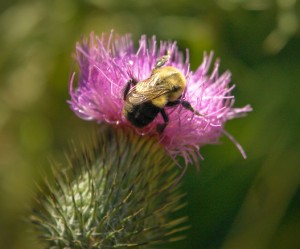The city is encouraging Laval property owners to treat ash trees on their land with TreeAzin, in an effort to save them from being wiped out by an insect that has recently invaded Île Jésus: the Emerald Ash Borer.
“The initial public tender only provided for treatment of trees on city land,” explained Laval executive committee vice-chairman David de Cotis. “After citizens called us to ask what they can do to protect the trees on private land, we went back and modified the public tender to permit them to treat their trees with TreeAzin at the same cost as the city. It’s our way of trying to help [residents] as much as possible.”
Unlike other cities in the Montreal region, Laval hasn’t waived its $50 fee for a permit to fell ash trees that have been infected by the pest.
“That is the case for now,” de Cotis acknowledged.
Some scientists have raised concerns about industrial-scale application of indiscriminate pesticides like TreeAzin.
“TreeAzin could seriously harm our songbirds, while the ash trees are going to die anyway,” warned Fred Ablenas, who holds a doctorate in chemistry.
He explained that not only will the chemical affect other useful insects like bees, butterflies and moths, but it will probably ultimately fail to save the ash trees that it is meant to protect.
“It is not a magic bullet, and will have consequences,” he cautioned. “For ash trees, the writing is on the wall. Most, if not all, will be killed by this insect. [Applying TreeAzin] is a futile waste of resources that will ultimately benefit no one except the manufacturer and the people who are paid to inject it into trees.”
“As a scientist, I would like to see these consequences evaluated properly, but there probably is not enough time,” he added. “The writing is on the wall.”
“The city should [instead] put resources into renewing the [tree] canopy,” Ablenas urged, “by identifying tree species that are appropriate for our climate and unthreatened by exotic or domestic pests; and by educating and encouraging homeowners to proactively plant replacements for the ash trees.”
